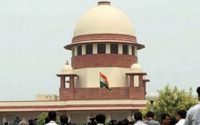$100 Website Offer
Get your personal website + domain for just $100.
Limited Time Offer!
Claim Your Website NowKey Supreme Court judgments that marked 2020
Source:-https://www.hindustantimes.com
The Supreme Court , once a hive of activity, remains quiet, but since March 23, when the courts started virtual hearings, life has returned to some sort of new normal : the court rooms have been substituted by virtual courts; paper books by computer files; judges conduct hearings through video conferencing; and technology largely determines success of a hearing, if not the outcome. But the year 2020 was as striking as any other year for the Supreme Court of India. A rundown of the outgoing year shows an assortment of crucial judgments , including a few that changed the landscape of judicial history.
The first month of 2020 witnessed a three-judge bench ruling against the telecommunication blackout in Jammu and Kashmir following the scrapping of Article 370. The judgment did not directly order for restoration of the services in the backdrop of the security concerns, but laid down an important principle in law – right to access Internet is a fundamental right by extension. Therefore, it can be demanded as such before a constitutional court. Further, every blackout order must specify reasons and has to be reviewed regularly by the authorities concerned, the court said.
Consider taking away power of disqualification from the Speaker
The Speaker also belongs to a political party, emphasised the court, requesting Parliament to amend the Constitution and strip Legislative Assembly Speakers of their exclusive power to disqualify MLAs. The court was hearing an appeal by a Congress MLA from Manipur, who complained against a delay by the Speaker in deciding a disqualification petition against another MLA who won on a Congress ticket but later joined the Bharatiya Janata Party (BJP). The court maintained that disqualification cases of either MPs or the MLAs should be decided by an independent tribunal, outside Parliament or legislative assemblies. In this case, the court said it was bound by existing laws and thus asked the Speaker to decide the disqualification petition preferably within three months.
Anticipatory bail cannot have a deadline
A five-judge bench cleared the confusion on whether the protection given to a person through anticipatory bail was time-bound, as it ruled that a pre-arrest bail cannot be subject to time constraints and that it can very well continue till the end of trial. The bench added a caveat that if there are any special or peculiar features necessitating the court to limit the tenure of anticipatory bail, it is open for it to do so.
Anticipatory bail cannot have a deadline
A five-judge bench cleared the confusion on whether the protection given to a person through anticipatory bail was time-bound, as it ruled that a pre-arrest bail cannot be subject to time constraints and that it can very well continue till the end of trial. The bench added a caveat that if there are any special or peculiar features necessitating the court to limit the tenure of anticipatory bail, it is open for it to do so.
Permanent Commission for women in armed forces
The year 2020 also saw the Supreme Court smashing the glass ceiling in services as it granted Permanent Commission (PC) to women officers in army, navy and air force. The deeply entrenched stereotype that men are dominant and women are primarily caretakers must end, said the court in a series of rulings in February when it struck down a 2019 circular that foreclosed the chances of women officers to apply for PCs. It directed the government to give PC to all serving women officers who have completed 14 years of service and to also give pensionary benefits to those who were retired on account of not being granted the commission. It added that service conditions of men and women officers would be the same and that the latter shall also be provided with choices of specialisations. Even for command assignments, there can’t be an absolute exclusion of women officers and they should be considered on a case-by-case basis, the court said.



